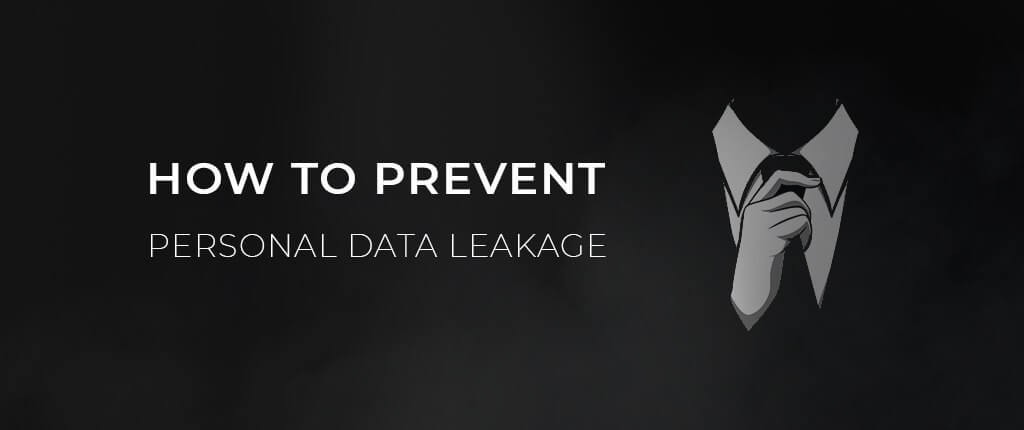How to Prevent Personal Data Leakage on the Internet

Global Web is a huge repository of information and entertainment, and we cannot imagine our life without it. However, you cannot use the Internet without revealing certain personal data to interested or controlling entities. Different users have different motives in anonymous surfing, and even ordinary Web surfers may be interested in hiding some information when they are online. Let’s check when you may need it and how to protect your data.
Not to Leave Your Browsing History
You can have a certain level of confidentiality by using anonymous browsing. It works if you try to protect your privacy from not super crafty users or if your browsing isn’t tracked in a very sophisticated way. For instance, in case you want to hide visiting certain resources from a person you live with or from your boss, it’s enough to use incognito mode. Of course, if there is installed a special tracking, anonymous browsing won’t help.
Not to Disclose Your Data in Web
Marketers and product distributors would do much to obtain more information about potential buyers. So far, they buy it from search engines and social networks. You may have noticed, as soon as you had checked some goods or services on the Web, you saw a lot of associated advertising for a long time. Though users are often irritated with the abundance of the ads, there’s not much they can do about it, because they agreed on this by accepting the terms and conditions of the used resources. Unfortunately, if you won’t agree on that, most likely, you just won’t be allowed to use the platforms.
Prevent Email Spam and Data Leakage
As a rule, data leakage is a problem of big organizations. However, regular Internet users also may face it and disclose their passwords to cybercriminals. However, there is another more common issue for all email owners; it is spam in mailboxes. Those problems can be partially prevented with a temp email address. Temporary email is the mailbox created at a special recourse, which collects useless e letters and automatically removes them after a certain period of time. It allows using your regular mailbox only for important correspondence, and provide the temp email address for various websites or companies that requires it, but won’t send anything more important than ads and spam email. In addition, the chance to reveal your main email and password to Web-intruders can be significantly decreased in this way.
Anonymity With VPN and Incognito Mode
If you want to hide your data from external sources, you should try using a VPN. Virtual Private Network is a protected link between a user and the Web. This tool has gained popularity among regular Internet surfers because it can help avoid blocking access to websites when the connection is allowed only to residents of a certain country or territory. Using it, you can choose another location of your IP-address. Besides, some VPN programs allow protecting your data with special encryption, which protects your confidential information, such as passwords, correspondence, and financial information from theft.
Anonymous browsing provides only partial anonymity, since your Internet service provider, company-employer, or the Internet resources that you visit can still track your actions. However, it doesn’t record your browsing history, search queries, and data for questionnaires. Web surfing through incognito mode also doesn’t save your passwords, cookies, and cache.
Don’t Use Google and Yahoo Services
Popular search engines Google and Yahoo are rather unreliable when it comes to confidentiality because they save people’s IP-addresses and cookies. Besides, these tools use the browsing history for promoting target advertising. Thus, other search engines get more users’ commitment. E.g., DuckDuckGo doesn’t use cookies and doesn’t record IP-addresses. The visitors also have noted the smaller amount of ads on DuckDuckGo comparing to Google.
